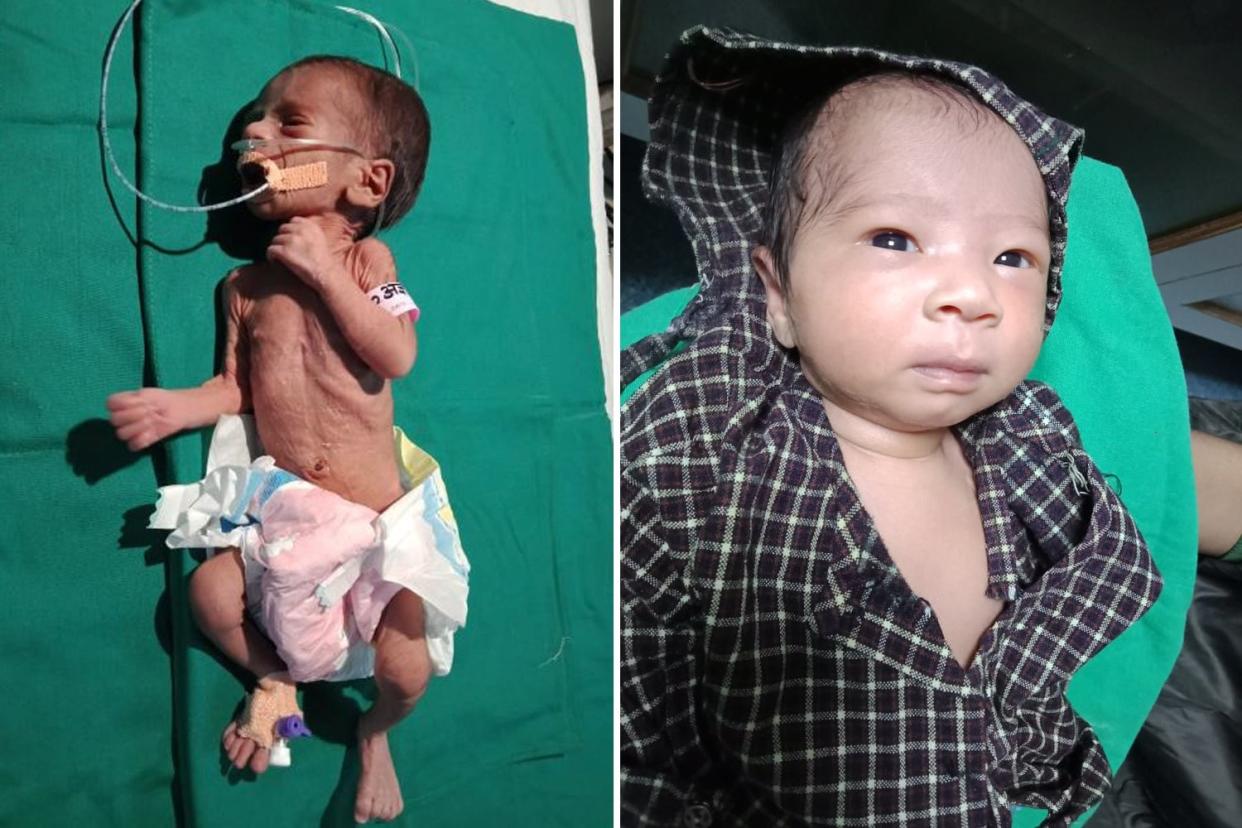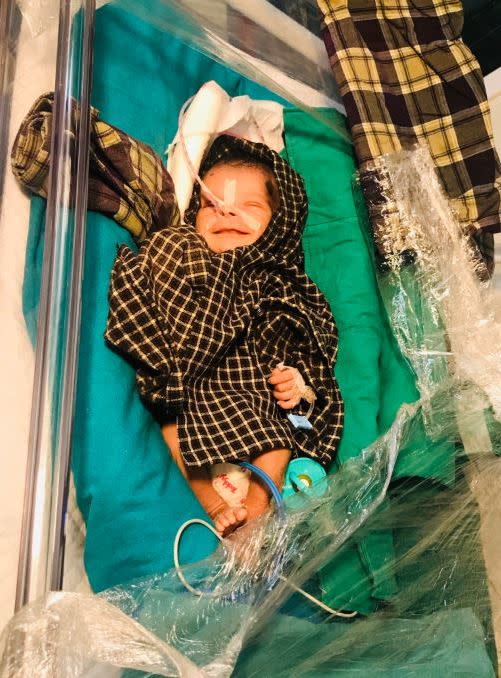India newborn found buried alive makes full recovery

A newborn baby discovered buried alive in a clay pot in northern India has recovered and is now thriving, her doctor has said.
She was taken to hospital in a critical condition back in October, weighing just 1.1kg (2.4lb) and suffering from septicaemia and a dangerously low platelet count.
The child is now back to a healthy weight and breathing and platelet counts are normal, her paediatrician Ravi Khanna told the BBC on Thursday.
He said:"On Tuesday, when we handed her over to the district hospital authorities, she weighed 2.57kg [5.66lb]. She's accepting bottle feed and she is now totally healthy,"
She is in the custody of child welfare authorities in Bareilly district, in the northern state of Uttar Pradesh, because her parents have not been traced. She will be put up for adoption following a mandatory wait period.

A villager was burying his own daughter, when he discovered the baby. She was taken to the local government hospital, but was later was moved to Dr Khanna's paediatric hospital, which has superior facilities.
Doctors concluded she was a premature baby, possibly born at 30 weeks- the newborn appeared visibly shrivelled, was hypothermic and had low blood sugar.
Police have lodged a criminal case and are looking for the parents.

They believe her parents were complicit in her burial, because no-one came forward to claim her, despite the wide publicity.
India's gender ratio is one of the worst in the world.
Women are often discriminated against socially and girls are seen as a financial burden, particularly among poor communities.
Campaigners say a traditional preference for sons has meant millions of female children lost to foeticide and infanticide over the years.

 Yahoo News
Yahoo News 
